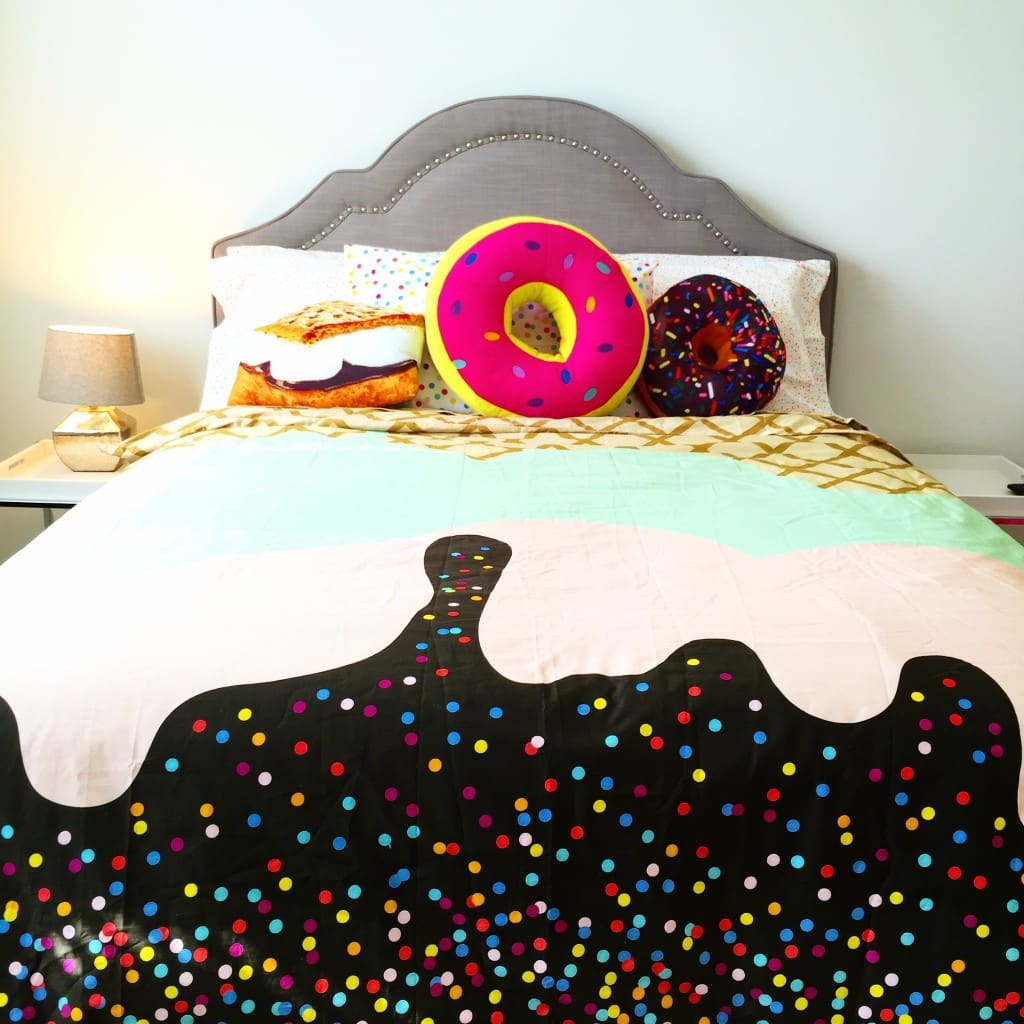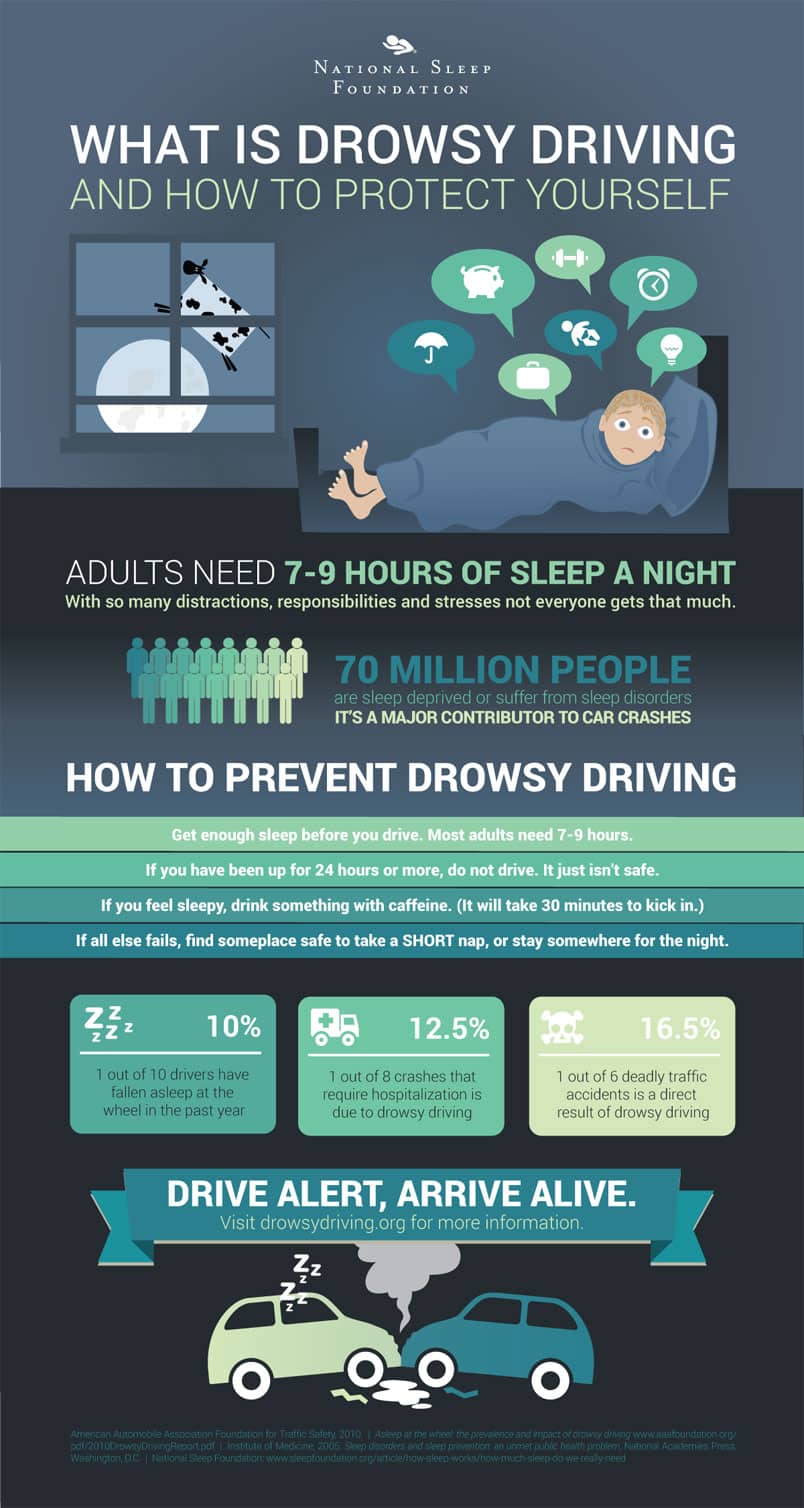The post is brought to you in partnership with the National Sleep Foundation. All Opinions are my own.
Hey All!
Growing up in New York aka the town that never sleeps, it can get very dangerous if you don’t get enough sleep and get behind the wheel. Since people walk in the middle of the streets where you drive there, all it takes is a second of shut eye behind the wheel as you’re driving to have a fatal accident. This can happen every where of course, but it’s something that can be easily prevented. So many pointless deaths occur each year due to people falling asleep behind the wheel. I’ve seen my share of accidents and even fatalities due to this. I even had a friend lost by a driver who fell asleep at the wheel. It’s something that is really upsetting and personal too me as it’s something that could have easily been prevented if the person behind the wheel didn’t try to drive when they were drowsy and if the person simply got enough sleep.
I’m taking a Pledge Against Drowsy Driving and supporting Drowsy Driving Prevention Week. I would love if you visited http://sleepfoundation.org/
Check out this infographic below for some quick tips on how to prevent Drowsy Driving:
Also check out these great tips I found on sleepfoundation.org and drowsydriving.org to help you sleep better which will also prevent Drowsy Driving.
- Stick to the same bedtime and wake up time, even on the weekends. This helps to regulate your body’s clock and could help you fall asleep and stay asleep for the night.
- Practice a relaxing bedtime ritual. A relaxing, routine activity right before bedtime conducted away from bright lights helps separate your sleep time from activities that can cause excitement, stress or anxiety which can make it more difficult to fall asleep, get sound and deep sleep or remain asleep.
- Avoid naps, especially in the afternoon. Power napping may help you get through the day, but if you find that you can’t fall asleep at bedtime, eliminating even short catnaps may help.
- Exercise daily. Vigorous exercise is best, but even light exercise is better than no activity. Exercise at any time of day, but not at the expense of your sleep.
- Evaluate your room. Design your sleep environment to establish the conditions you need for sleep. Your bedroom should be cool – between 60 and 67 degrees. Your bedroom should also be free from any noise that can disturb your sleep. Finally, your bedroom should be free from any light.
- Check your room for noises or other distractions. This includes a bed partner’s sleep disruptions such as snoring. Consider using blackout curtains, eye shades, ear plugs, “white noise” machines, humidifiers, fans and other devices.
- Sleep on a comfortable mattress and pillows. Make sure your mattress is comfortable and supportive. The one you have been using for years may have exceeded its life expectancy – about 9 or 10 years for most good quality mattresses. Have comfortable pillows and make the room attractive and inviting for sleep but also free of allergens that might affect you and objects that might cause you to slip or fall if you have to get up during the night.
- Avoid alcohol, cigarettes, and heavy meals in the evening. Alcohol, cigarettes and caffeine can disrupt sleep. Eating big or spicy meals can cause discomfort from indigestion that can make it hard to sleep. It is good to finish eating at least 2-3 hours before bedtime.
I know I’ll be practicing all these tips and I hope you will as well!
Drowsy Driving Prevention Week runs November 2nd-9th. Please take the Pledge Against Drowsy Driving!











































Comments
Grrr, I so need to work on points 1-4. It also doesn’t help that I have obstructive sleep apnea…
Yeah, I definitely don’t get enough sleep 🙁 I hate driving in the morning as a result, I need so much coffee and sometimes have to ask others for help so I don’t endanger anyone.
Great tips! I think drowsy driving is so dangerous!!
I’ve had some afternoons where I was so tired I was afraid to drive home from work.
Getting a good night’s sleep is so important for so many reasons. With all of the many dangers on our roads, it is crucial that we do what we can to avoid accidents.